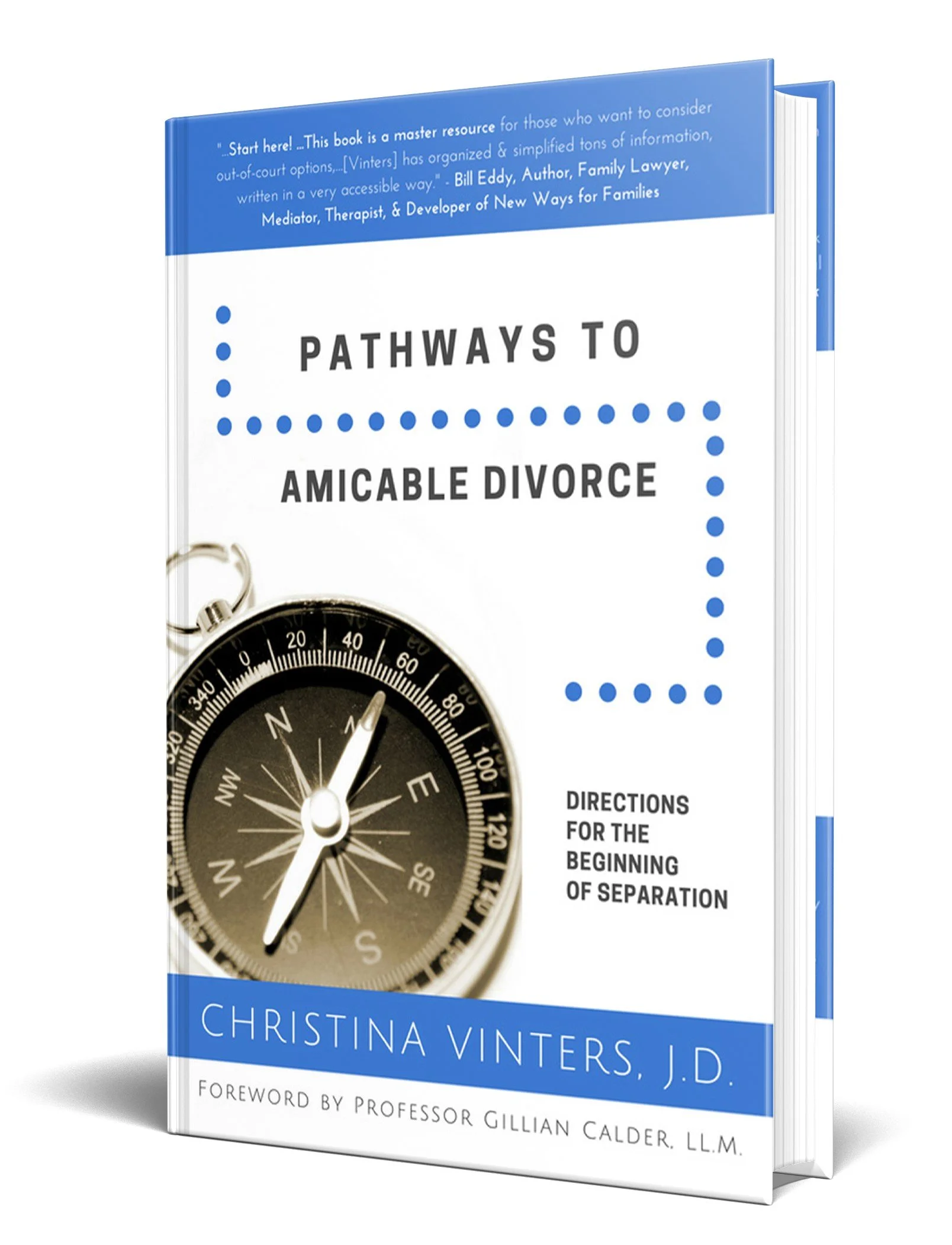What is a Separation Agreement and what should I consider before getting started?
What is a Separation Agreement?
A Separation Agreement is the written contract that is necessary in order to finalize your legal and financial ties with your partner. You may finalize all issues arising out of the breakdown of your relationship by way of a Separation Agreement and you do not need any court involvement at all, except at the end of the process to obtain your divorce order.
“Legal Separation”
You do not require the Separation Agreement in order to be “legally separated” (this is an American concept) – you will be “separated” as soon as you have had the discussion that you’re separating, or one of you has notified the other that your relationship is over.
Documenting Your Rights & Obligations
Your legal rights and obligations will not be resolved (they will legally remain open issues) until you have entered into a written Separation Agreement or obtained a court order. The exception to this is that there are certain limitation periods for making claims if you were never married or if there are step-children for whom you wish to claim support. If you are married, the issues of property division and support remain open indefinitely (the limitation period begins after the divorce has been granted). This means that if you have only an informal understanding with your partner and you wait to obtain your divorce, you may be unpleasantly surprised in the future, for example with a claim for spousal support, division of your pension, or some other matter that you thought had been agreed upon verbally.
In the context of family law, you cannot rely on verbal agreements (they are legally invalid and unenforceable) and any Separation Agreement you enter into must be properly prepared and executed to be legally valid and enforceable.
Your Separation Agreement should be:
comprehensive (addressing all of the relevant issues – although, in some cases, people choose to enter into interim/temporary agreements before they complete a final Separation Agreement. All issues will have to be addressed eventually and most people prefer to have one comprehensive document);
detailed (including disclosure of all property, debts, and income, any pertinent history, and the specific terms of agreement regarding all issues, for example: What happens if the house doesn’t sell by a particular date? How will parenting time be shared on holidays? How will future communication take place? How will future disagreements on important issues be handled? – essentially, enough detail to clearly understand the agreement, to address future contingencies, to hopefully minimize the chances for future disagreements, and for someone later reviewing the agreement to be able to analyze whether it is fair);
dated;
signed by both of you; and
witnessed by a third party (you can’t witness each other’s signatures); and
drafted by a Family Mediator (as long as they are also a Family Lawyer) or a Family Lawyer in order to ensure that it will achieve what you’re expecting it to, such as be considered acceptable documentation for obtaining a mortgage or completing pension division.
Details to Include in a Separation Agreement
A Separation Agreement must be comprehensive and detailed to be able to withstand scrutiny should any future disagreements arise.
The following is a cursory overview of the topics to be fleshed out in a Separation Agreement if they pertain to your situation:
the basics about you: names, occupations, incomes, date of cohabitation, date of marriage, names and ages of children, date of separation;
the assets and debts that you each had at the beginning of your relationship (if any);
the assets and debts that you each had at separation;
the assets and debts that you each have now (some of which may not be considered family property or family debt);
any inheritances or gifts you received;
any property or debt that you agree is not family property or family debt;
a brief summary of your roles in the relationship (Did you both work? Was one person a homemaker and the other the income earner?)
did you enter into a Prenuptial Agreement (Marriage Agreement or Cohabitation Agreement) at the beginning of the relationship? If so, does it still apply?
the details for how you will handle the care of your children (which must be determined only with regard to the children’s best interests);
child support;
special and extraordinary expenses;
determination of family property and debts;
how property will be divided;
who will be responsible for which debts;
tax responsibility;
details regarding the sale of any assets and how the sale proceeds will be shared;
pet ownership;
details of spousal support – Is it payable? How much? For how long? Will there be a review?
what happens to any life insurance policies that you have? Will you maintain them until the children are grown as security for child support? Who pays the premiums?
how will future disputes be resolved? Is mediation required before going to court?
if it’s a final agreement, it should say it’s a final agreement and there should be corresponding waivers for all other issues except enforcement of the agreement;
etc., etc., etc….
This is just the beginning of a list to give you a sense of the depth of detail that you need to consider. A properly drafted Separation Agreement tends to be much longer than most people expect – generally speaking in the range of 15 – 25 pages, depending on how many issues need to be addressed and the complexity of the issues. If there are a lot of complex issues, the legal separation contract could be over 25 pages long.
The Risks of a DIY “Simple Separation Agreement”
Many people hope to create a “simple separation agreement” that they anticipate will be 1 – 2 pages long. Such an agreement will be lacking in significant ways and will not provide the desired outcome of certainty and finality because a weak agreement will be vulnerable to future challenges. This means that if one of you becomes aware of a problem with the agreement down the road, you could make an application to the court to set the agreement aside (which may or may not be successful but will likely be expensive and stressful).
It is worth the effort and investment to have your legal Separation Agreement drafted by someone who has significant knowledge, experience and proper accreditation in the area of family law. Do yourself the favour of completing this crucial task properly. An investment at the front end of the process into a properly prepared legal separation contract could save money and heartache in the future. As with most things in life, an ounce of prevention is worth a pound of cure.
Some of the challenges that occur after having signed a problematic Separation Agreement are:
the agreement failed to address a key issue (and possibly the deadline for making a claim regarding that issue has passed);
the words in the agreement have a legal meaning other than what the person thought; or
the agreement turns out to be unfair because it was created without adequate information or advice.
The Not To Do List:
Don’t draft a Separation Agreement yourself – this includes using Separation Agreement templates purchased online or copying from a friend’s Separation Agreement (whose situation is bound to be different from yours);
Don’t ask your real estate lawyer to draft it; and
Don’t ask your family member who is a legal assistant at a personal injury law firm to draft it.
Using the analogy of medical care: you wouldn’t attempt to perform surgery on yourself and you wouldn’t want the doctor who performed your knee surgery (or your sister who helps deliver babies) to complete your cardiac valve replacement. We have the benefit of living in an age of specialization and you want someone with focus on the ins and outs of family law to handle your separation papers – not someone who dabbles in divorce.
Do it once and do it properly so that you can move on with your life without having to worry.
Do I need to have a legal Separation Agreement if I want to get divorced?
The process of resolving all of your legal issues by Separation Agreement is the fastest and most cost-effective way of getting legal closure whether you are common law or married.
If you are married, you will also need to apply to court to obtain a divorce order and this will be a fairly straight-forward process if your only request is for a divorce order.
If you want a judge to make orders regarding your family property, family debt, parenting arrangements, child support, spousal support, and/or other legal issues, this will be a long, stressful and expensive process. Also, if you have dependent children, you are required to have either a Separation Agreement or a court order regarding the parenting plan and child support before the court is able to grant a divorce.
You can avoid the worst aspects of the family law system if you settle all of your family matters other than the divorce with a legal separation contract.
What is the best way to get a Separation Agreement?
Family mediation is the gold standard for an effective, efficient, convenient & safe Separation Agreement process for most families. Rather than you each hiring your own divorce lawyer to negotiate your family matters, together you work with a neutral family mediator who does not represent either of you but instead helps you find a solution that will work for both of you. This kind of amicable process can have you toasting to the completion of your family transition - it is a joint success to wrap up your marital relationship with kindness and respect.
Family mediation may be a good choice for your situation if:
you seem to be in agreement about all issues and you want a legal Separation Agreement prepared;
you are disagreeing about some issues and need help working them out; or
you are arguing about a lot of details but you both want to avoid wasting time/money in court and you both want to achieve a mutually acceptable outcome.
What can I do if my spouse won’t talk to me about a Separation Agreement?
Very frequently, people who seem a bit stubborn or unfair in private conversations actually agree to reasonable terms with the help of a skilled family mediator. It may be worth inviting your spouse to family mediation to see if you can get to a resolution that works for both of you.
Other Dispute Resolution Options for Completing a Separation Agreement
If family mediation isn’t appropriate for your situation, you may want to look into collaborative family law or arbitration if you want to try to achieve an out-of-court resolution. Of course, you also have the option of retaining a family lawyer.
For more information on dispute resolution options, consider reading Pathways to Amicable Divorce: Directions for the Beginning of Your Separation, written to help separating couples avoid the common divorce pitfalls & increase the likelihood of an amicable divorce.
~ Christina Vinters, J.D., C.Med.
Call or text us at 778-475-8002 for help with your legal Separation Agreement!







